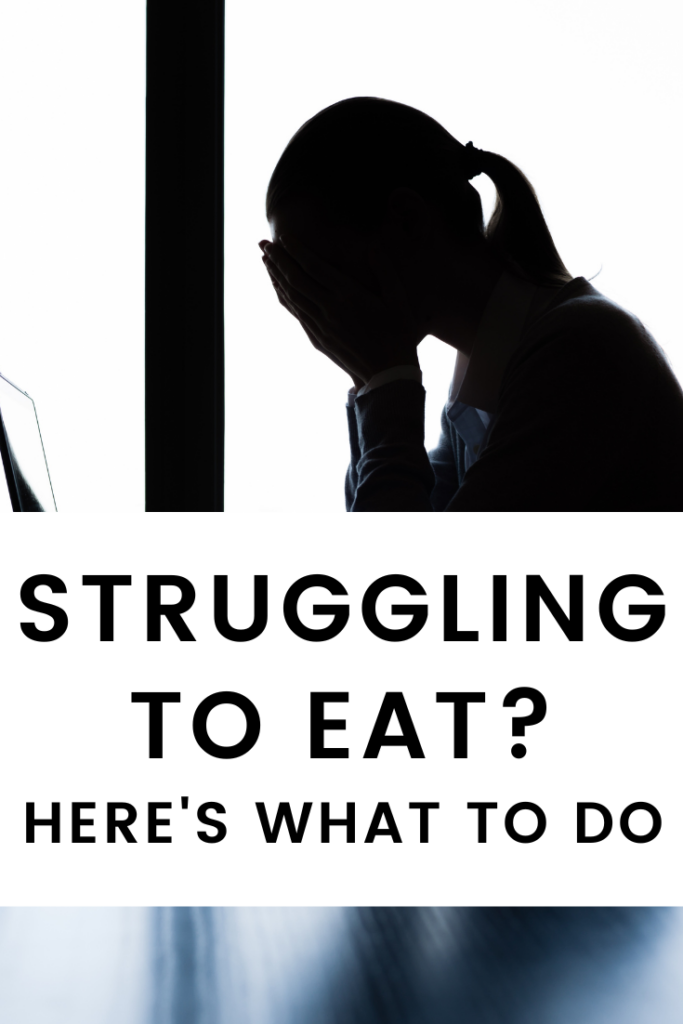Everyone’s response to emotional distress, whether that be stress, anxiety, fear, trauma, or nervousness, just to name a few—is different. Navigating through this distress isn’t always straightforward and what works for one dancer might not be what works for another.
Emotional eating often encompasses the use of food as a tool to navigate through distress. It’s a topic I’ve written about extensively, mainly regarding the cultural construct that imposes unnecessary shame and guilt around the behavior. Spoiler: turning to food when you’re feeling emotional distress doesn’t make you a bad person— in fact, we can reclaim ourselves as emotional eaters in a way that’s supportive, not destructive. More on this, here. But how about the dancers who lose their appetites when experiencing emotional distress?
Emotional Eating vs. Emotional Restrictive Eating
Pre-existing disordered eating habits (even those lesser obvious like dieting and “clean” eating) can impact your response to emotional distress— driving you toward either side of the spectrum. Some might turn to food for temporary relief, ultimately experiencing periods of “over”-eating or binge eating if their body is used to running on a calorie deficit. In contrast, emotional distress might exacerbate restrictive behaviors— a common response for those struggling with anorexia nervosa (keep in mind, though, not everyone who loses an appetite when stressed has an eating disorder). In this article, we will focus on the latter— how dancers can navigate emotional distress without under-fueling.
The risks of appetite loss
Calorie deficits, like those from under-eating, are never helpful for the body. If a sudden calorie deficit during a distressing time exacerbates preexisting under-eating, then the risk of negative complications is amplified. Relative Energy Deficiency in Sports, a topic I discuss here, explains the physiological risks associated with energy imbalances— injury and burnout are just the tip of the iceberg. Not only does appetite loss exacerbate disordered eating, but it can also trigger it. The longer your emotional distress causes a reduction in food intake, the more prone you might be to sustaining those disordered habits.
Eating too few meals and snacks throughout your day also makes it harder to navigate emotional distress. Think about it: can you think straight when feeling hungry? A lack of focus and concentration can make it harder for you to focus on more productive ways of navigating emotional distress (more of which I discuss below).
It’s not all bad news
Research suggests that differences exist between how dieters (anyone restricting their food intake) respond to stress versus how non-dieters respond. For dieters (arguably, those in the depths of disordered eating), it’s common to turn to food as a temporary source of comfort. As mentioned previously, restrictive eating patterns increase one’s susceptibility to using food as a coping tool.
But things look different for dancers who both aren’t struggling with disordered eating and do not have an active eating disorder. Losing an appetite when emotionally distressed could be a sign that you’re incredibly in tune with your body. Your baseline (the way you eat when not experiencing emotional distress) is likely not running low (on calories), and instead, more adequately fueled when compared to a dancer who is continuously struggling with restrictive eating patterns.
But that’s an exception
To be clear, losing an appetite when emotionally distressed is not an independent sign that you’ve healed your relationship with food. For any dancer who has not yet done the work to dismantle the confusion of diet culture (everything I cover in The Healthy Dancer), appetite loss could mean quite the opposite. Dancers diagnosed with anorexia nervosa (restrictive type) often experience a marked reduction in appetite, especially during periods of emotional distress.
Regardless, a loss of appetite during times of emotional distress shouldn’t be ignored. In fact, dancers should proactively intervene— here are 5 actional steps to do just that.
5 effortless tips for eating despite appetite loss
#1. Flexible meal planning
Even when distressed, we want to maintain an energy balance. Intuitive eating won’t be your goal during this time, but rather, proactive fueling. Remember the ultimate goal of intuitive eating is to nourish your body. In other words, having a more proactive and less intuitive approach to food is key. Construct a flexible eating routine with tolerable meals and snacks throughout your day, even without the presence of an appetite.
#2. Prioritize practical food choices
Instead of stressing over nutrition facts and nutrient density, now’s the time to prioritize reliable, consistent access to food. Convenient and packable options (fruit, trail mix, sandwiches, wraps) are examples. Easy-to-prepare ingredients like canned or frozen veggies, soups, and packaged meals are also helpful. Setting reminders (post-its, phone pings) for meals and snacks may help to keep you accountable.
#3. Build your coping toolbox
Non-food-related emotional coping tools are another helpful way to navigate emotional distress. For most (including myself), it’s best to formulate these ahead of time— construct a list of reliable, budget-friendly activities like coloring, beading, listening to music, at-home yoga, and foam rolling).
#4. Skip the judgment
Many dancers who experience a sudden loss of appetite following emotional distress will eventually experience an increase in appetite. Don’t be fearful of it— this might be your body communicating its need to make up for what it missed while you were struggling. This is even true if you’re proactively fueling your body.
#5. Get support
Navigating appetite loss during times of emotional distress can be challenging. As a Registered Dietitian Nutritionist, I work with dancers to help them identify supportive eating habits during even the more challenging times. To help get you started, click here to schedule a free coaching discovery call.




